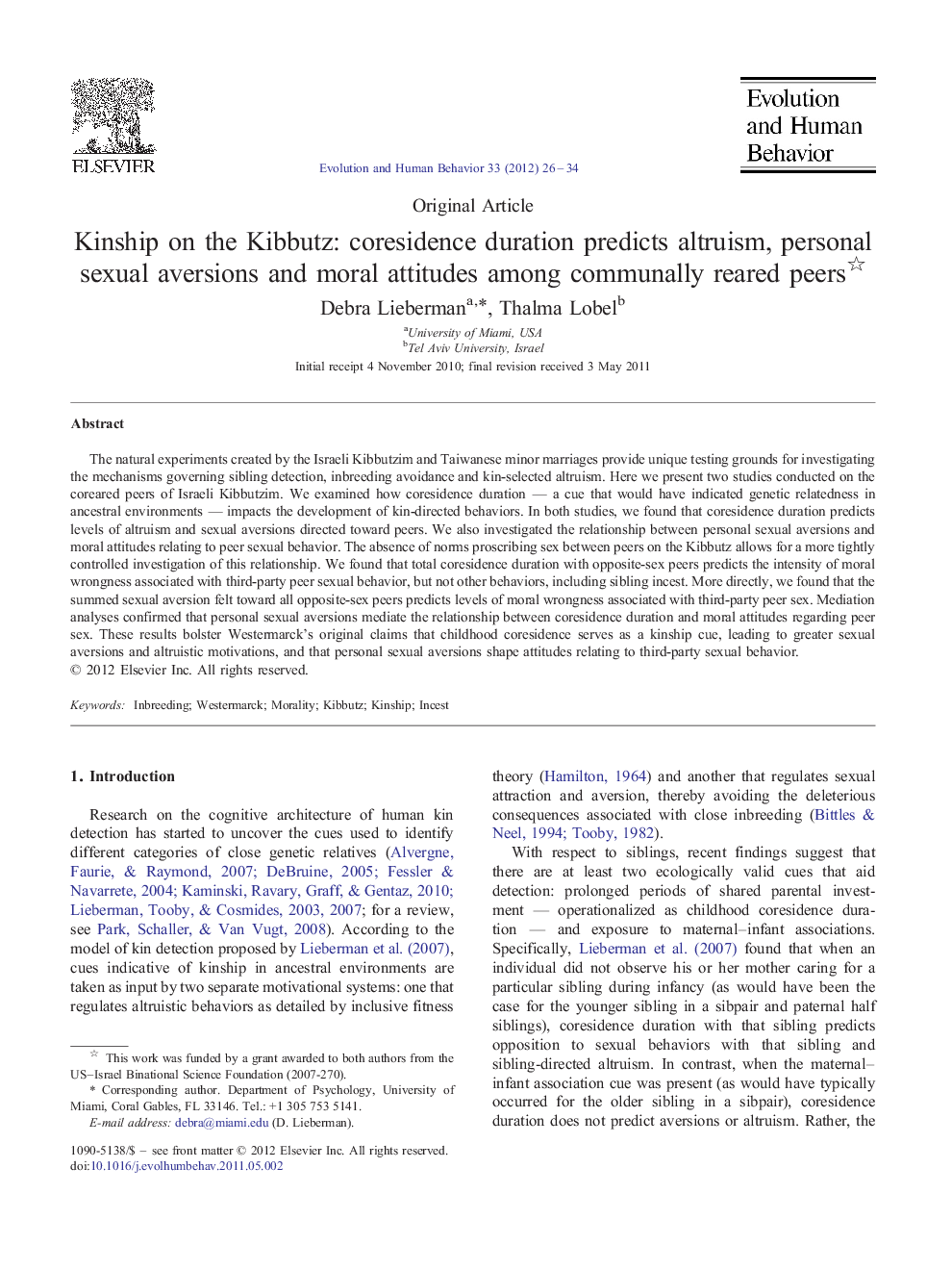| Article ID | Journal | Published Year | Pages | File Type |
|---|---|---|---|---|
| 943234 | Evolution and Human Behavior | 2012 | 9 Pages |
The natural experiments created by the Israeli Kibbutzim and Taiwanese minor marriages provide unique testing grounds for investigating the mechanisms governing sibling detection, inbreeding avoidance and kin-selected altruism. Here we present two studies conducted on the coreared peers of Israeli Kibbutzim. We examined how coresidence duration — a cue that would have indicated genetic relatedness in ancestral environments — impacts the development of kin-directed behaviors. In both studies, we found that coresidence duration predicts levels of altruism and sexual aversions directed toward peers. We also investigated the relationship between personal sexual aversions and moral attitudes relating to peer sexual behavior. The absence of norms proscribing sex between peers on the Kibbutz allows for a more tightly controlled investigation of this relationship. We found that total coresidence duration with opposite-sex peers predicts the intensity of moral wrongness associated with third-party peer sexual behavior, but not other behaviors, including sibling incest. More directly, we found that the summed sexual aversion felt toward all opposite-sex peers predicts levels of moral wrongness associated with third-party peer sex. Mediation analyses confirmed that personal sexual aversions mediate the relationship between coresidence duration and moral attitudes regarding peer sex. These results bolster Westermarck's original claims that childhood coresidence serves as a kinship cue, leading to greater sexual aversions and altruistic motivations, and that personal sexual aversions shape attitudes relating to third-party sexual behavior.
